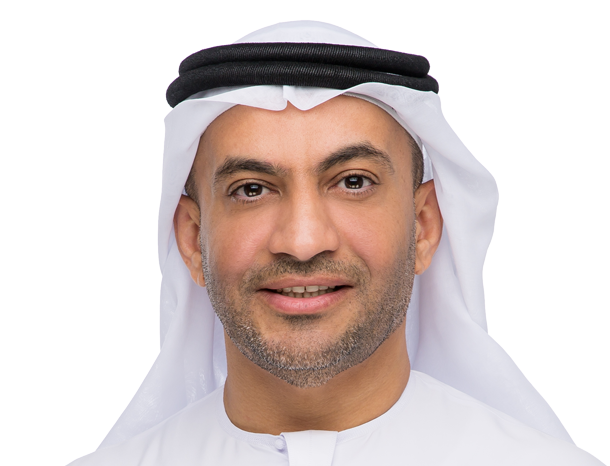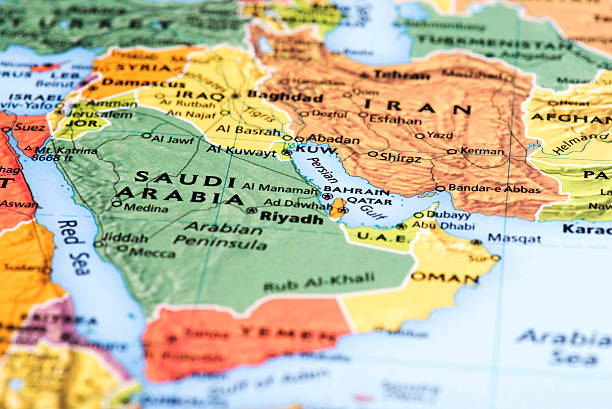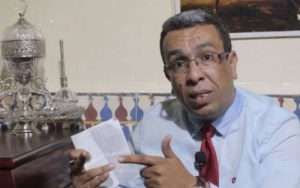AlKetbi Explores Iran’s ‘Arabian Gulf’ Controversy

The “Arabian Gulf” is one of the most sensitive terms for the Iranian regime in relation to its Arab neighbors. Facts of recent history make no bones about this. The latest such fact to bring it back into the limelight is Iraq’s hosting of the 25th Arabian Gulf Cup.
The dispute between Baghdad and Tehran arose after Tehran summoned the Iraqi ambassador to protest the use of the name “Arabian Gulf” instead of the Farsi name for the Gulf during the tournament. Iranian Foreign Minister Hossein Amir-Abdollahian confirmed that the Iraqi ambassador was summoned to his country after Iraqi authorities used a “fictitious term.”
He also stated that he conveyed the “sensitivity of the Iranian people” to the use of a correct and complete term for the Arabian Gulf, of course from the Iranian point of view. Abdollahian stressed, “Although we have a strategic, brotherly and deep relationship with Iraq, we have clearly expressed our protest on this issue.”
In this context, several observations can be made, the first of which is that the Iranian regime raises the issue of naming the “Arabian Gulf.”
This comes from the use of this name by Iraqi Prime Minister Muhammed Shia’ Al Sudani and Sayyid Muqtada Al Sadr in welcoming the hosts of the tournament in Basra, something commonplace and trivial, since Iraq is an Arab country that welcomes the Arab countries of the Gulf. Therefore, the use of the name within the officially accepted Iraqi positions and policies is normal and no news.
In all Arab and Gulf capitals, the name “Arabian Gulf” is used and circulated daily, but Iran has only protested the Iraqi position. In my opinion, this has one main reason – the Iranian regime’s view of Iraq and its foreign policy, which in its eyes must be defined by a complete dependence on Iranian positions and policies. This is categorically unacceptable to both the Iraqi and Arab people.
The second observation is in the same direction. Iran is very concerned and upset about Iraq hosting the Gulf Cup and sees this as a gradual return of Iraq to its natural Arab fold. This displeases Tehran, which has worked since 2003 to bring Iraq into the Iranian orbit.
In doing so, it ignores the historical Arab dimension of this great Arab nation, which has such knowledgeable politicians, human and material resources that are independent of any other country. It is no wonder that the Iranian strategic inroads into Iraq in the last years and until now will be only a fleeting summer cloud on the march of this Arab state.
Things should return to normal once Iraq is rid of the problems that have racked it, holding back its comeback to its role in civilized human development. The Iranian foreign minister argues that the people of Iran feel triggered by calling the Gulf an “imaginary concept.”
He forgets however that the Iranian people are not into these petty positions that the regime manufactures to distract from what is going on inside the protests and the widening gulf between the government and the people. Iranians have priorities that go far beyond the semantics of the Gulf.

All of this was evident in the incident involving the Iranian national anthem, which members of the Iranian soccer team refrained from singing during the last World Cup in Qatar. Nevertheless, the regime wanted us to think that the Iranian people, who are growing in anger and rejecting everything to do the regime, are upset about the Arabian Gulf name.
Iran’s outcry against Iraq’s policies and treatment of its brothers in the Arab world and the Gulf will not stop as it keeps trying to tie the hands of Iraqi politicians. This means bowing to the Iranian dictatorship or facing its wrath, with all the political, partisan and security consequences that would affect Iraq’s domestic life.
The point is that the Iranian regime must understand that Iraq has to act as a sovereign country, respectful of all and free from interference.
Iraq’s positions as expressed in Prime Minister Mohammed Shia’ Al Sudani’s statements are objective and worthy of recognition, as he stressed that his country’s relations with Iran are historical and that there are cultural, religious and social similarities.
These facts cannot be denied as they are based on a geopolitical reality given the common borders of over 1,200 km in length and the history-long cultural and religious affinities.
Al Sudani did not leave it at confirming the relations, but pointed out in his remarks to Germany’s Bild newspaper that Iran has been supporting the political process in Iraq since 2003 and that Tehran is helping in the fight against terrorism. This is an official Iraqi position that deserves respect whether you agree with it or not.
But in the same remarks, Al Sudani made it clear he wants to “keep cooperation and support away from interference in internal affairs.” This is important. It will take a lot of time and effort to convince Tehran and its regime that Iraq is not an Iranian enclave but an independent country.
Iraq also does not want to jump on the bandwagon of axis politics, either regionally or internationally. It wants to establish balanced relations with “all” neighboring countries. These are obvious principles that should not be challenged by Iran.
As a researcher, I believe that Iraq is pursuing a sensible policy at this point in time that all actors, especially Iran, should support if it truly wants to achieve regional security and stability.
Because if Iraq fails to engage on axes of common interest for the entire region and Iran tries to dominate its sovereign decision, it will only keep itself and the entire region in a state of fragmentation and instability. Iraq is also focusing on building economic partnerships and taking initiatives to bring the views of Iran and Arab countries closer.
Reducing tensions seems to be a purely Iraqi interest and regional stability is tied to its security and sustainable development.
The Iranian regime should have supported these reasonable tendencies and strategies instead of trying to drag Iraq into ersatz conflicts and fabricating pointless disputes whose only purpose is to keep the region in a state of tension, which the Iranian regime considers a prerequisite for its survival.
The author is an UAE political analyst and former Federal National Council candidate. He can be found on twitter at @salemalketbieng
Want to chase the pulse of North Africa?
Subscribe to receive our FREE weekly PDF magazine













